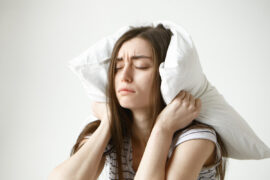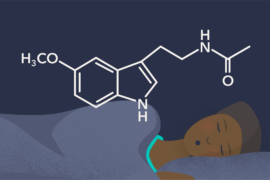If you have been suffering from severe insomnia for a long time, and have tried many different remedies and strategies for managing it, your doctor may suggest that you undergo a sleep study. Sleep studies are used to take a much closer look at the way that you sleep in order to try and pinpoint potential problems with your sleep cycle or physiological conditions that might be creating issues for you. Sleep studies are generally reserved for people who are having a terrible time with their insomnia, to the point that their life is being very negatively impacted by the condition. Therefore, if you only have occasional issues with falling asleep, a sleep study is probably not right for you. For many people, though, real treatment cannot even begin until they have undergone an extensive sleep study with their doctor.
What are sleep studies used for?
In addition to finding a suitable strategy for treating a condition like insomnia, a sleep study might be in order for a number of other sleep conditions. People who have the symptoms of sleep apnea – a general feeling of exhaustion despite getting plenty of sleep – often undergo sleep studies. Many times, a sleep study reveals that the person in question stops breathing multiple times per night – a classic symptom of sleep apnea. Sleep studies are also used to diagnose narcolepsy. Unusual or problematic movements or occurrences during the night, including bed wetting, night terrors and sleepwalking, may also be given a closer look during a sleep study. Basically, any condition that warrants enough concern about a person’s sleep habits might prompt the need for a sleep study; although not very common, they are also hardly unheard of.
How are sleep studies performed?
Sleep studies are usually done at local hospitals in specially outfitted rooms or suites. Patients are fitted out with special electrodes and sensors that monitor their heart rate, pulse, blood pressure, temperature and other pertinent information. Doctors or nurses may also observe the patient while he or she sleeps, or a recording might be made during the night so that doctors can look back on what happens. Sometimes, a mask is also affixed to the patient’s mouth so that their breathing can be monitored. This is the best and easiest way for doctors to diagnose problems like sleep apnea, but can also provide clues about difficulties with insomnia or other problems. Sleep studies take place during normal nighttime sleeping hours, in order to more closely replicate a genuine sleeping experience. Nothing truly invasive happens during a sleep study, although some patients may feel uncomfortable simply due to being in a more clinical environment.
Sleep study costs
One of the biggest drawbacks of any sleep study is the cost. Many health insurance policies do not cover sleep studies except for under very specific circumstances. If your insurance doesn’t cover it – or if you do not have health insurance – then the price of a sleep study is probably going to be beyond your financial means. Costs vary from place to place, but are reported to be as high as $6,000 in some areas. On the low end of the scale, a sleep study might cost you approximately $3,500. Either way, it is by no means a small amount of money and it will probably make you think twice about undergoing one. This is yet another reason why sleep studies are reserved only for very severe cases of insomnia and other sleep problems.
Sleep study alternative
If you have tried many different strategies but are still experiencing severe insomnia, you may be considering having a sleep study. Before you do, though, you should try out some over the counter sleep aids and herbal remedies that might help cure insomnia. If you can avoid having a sleep study done, you are definitely much better off. There are many very good sleep aids on the market today, many of which are all natural and do not cause any major side effects. While selecting one can be difficult, our handy product chart can help you get a better idea about what is available – and what might most successfully help you manage your insomnia. Read our sleep aid reviews.




